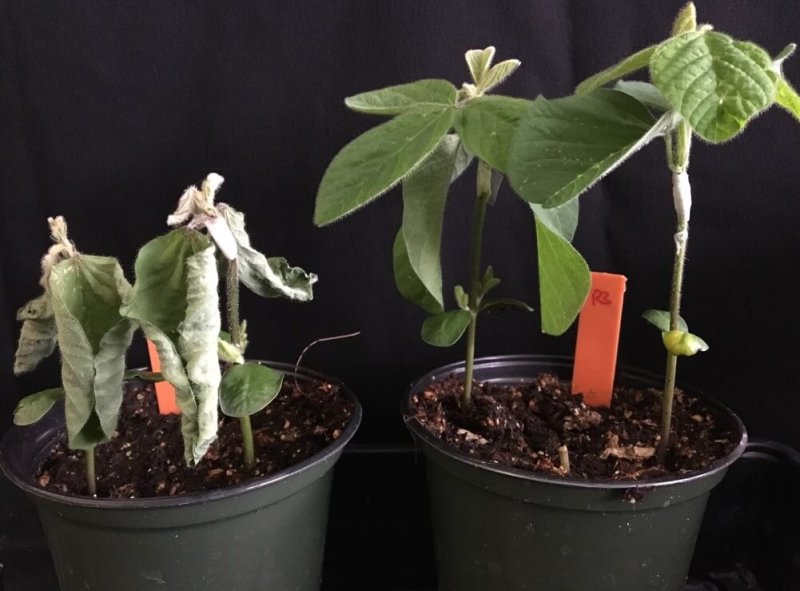Protecting crops from pests and pathogens without using toxic pesticides has been a longtime goal of farmers. Researchers at Boyce Thompson Institute have found that compounds from an unlikely source – microscopic soil roundworms – could achieve this aim.
As described in research published in the May 2019 issue of Journal of Phytopathology, these compounds helped protect major crops from various pathogens, and thus have potential to save billions of dollars and increase agricultural sustainability around the world.
Led by BTI Senior Research Associate Murli Manohar, a team around Professors Daniel Klessig and Frank Schroeder investigated the effects of a roundworm metabolite called ascr#18 on plant health.
Ascr#18 is a member of the ascaroside family of pheromones, which are produced by many soil-dwelling species of roundworms for chemical communication.
The researchers treated soybean (Glycine max), rice (Oryza sativa), wheat (Triticum aestivum) and maize (Zea mays) plants with small amounts of ascr#18, and then infected the plants with a virus, bacteria, fungus or oocmycete.
When examined several days later, the ascr#18-treated plants were significantly more resistant to the pathogens compared with untreated plants.
“Plant roots are constantly exposed to roundworms in the soil, so it makes sense that plants have evolved to sense the pest and prime their immune systems in anticipation of being attacked,” says Schroeder.
Because they boost plants’ immune systems instead of killing pests and pathogens, ascarosides are not pesticides. As a result, they are likely to be much safer than many current means of pest and pathogen control.
“Ascarosides are natural compounds that appear to be safe to plants, animals, humans and the environment,” says Klessig. “I believe they could thus provide plants more environmentally friendly protection against pests and pathogens.”
…
Extremely small concentrations of ascarosides are sufficient to provide plants with resistance against pathogens. Interestingly, the optimal concentration appears to be dependent on the plant species and not the pathogen.
The researchers believe the reason that different plant species have different optimal dosages is likely related to the plant cell’s receptors for ascr#18. Different plant species may express different amounts of ascr#18 receptors, and receptors may have varying affinities for ascarosides. Such differences would affect the amount of ascr#18 needed to trigger the plant’s immune systems.
The group is now working to determine the molecular mechanisms of how ascarosides prime the plant’s immune systems.
Read full, original article: Worm pheromones protect major crops































